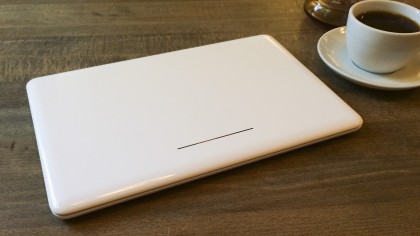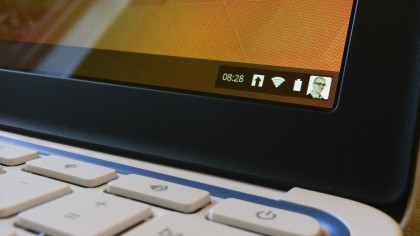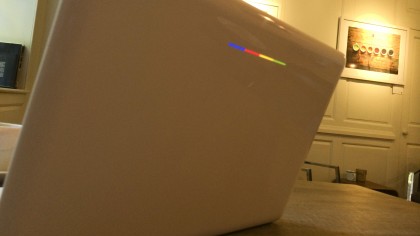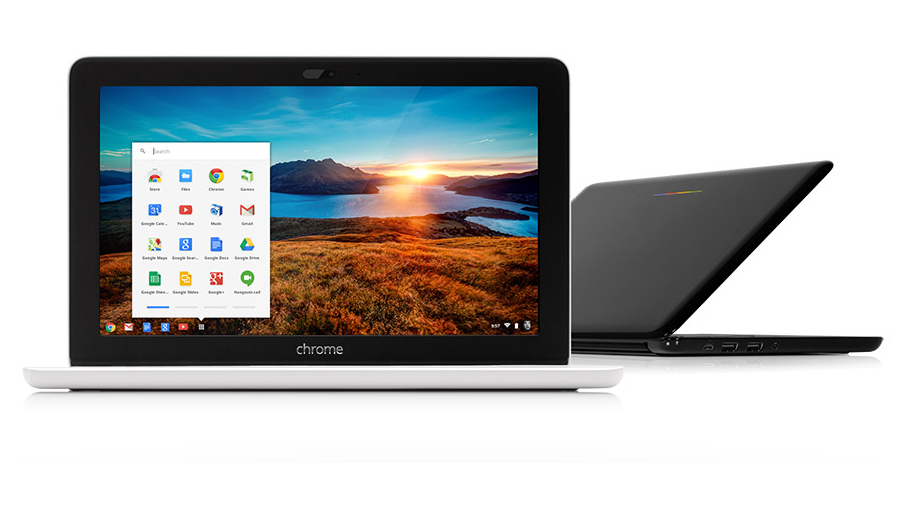Why you can trust TechRadar
Those specs, though, underwhelming as they are by the standards of advanced laptops from Apple, Sony, Asus, Alienware and the like, are just about perfect for a machine powered by Chrome OS. Now, Chrome OS won't be for everybody, and even for those for whom it is appropriate, only a small subset would be content with a Chrome OS computer as their only or even primary computer.
A recap, then, on Chrome OS: unlike traditional desktop operating systems such as OS X 10.9 Mavericks, Windows 8.1 or even Linux distros such as Ubuntu, you don't run apps in the traditional sense. Instead you just get the Chrome web browser, so everything you do has to be done through web apps.
That might sound restrictive – indeed, it by definition is restrictive compared to a normal PC – but it's for you to decide if you could or would want to use a computer that only runs a browser. Before you decide, consider two things.
First think about how much of what you do on a computer these days is actually already done through a web browser; there's a good chance both that it's more than you realise and maybe even a greater chance that those jobs you currently use traditional apps for could be transferred to equivalent web apps without too much disruption.
The other thing to consider is that web apps these days are actually becoming astonishingly capable, and while they're not matching, never mind exceeding, the full richness of the kind of flagship productivity and creative suites we're used to on PC and Mac, web apps such as Apple's iWork suite, the simple video editor on YouTube, Office 365 and Google's Docs platform are more flexible and productive than many people might give them credit for.

What's more, while you might think a web app is useless without a web connection (a problem exacerbated by the fact that the promised 4G model of this Chromebook isn't here yet, so you have to be in range of Wi-Fi to get online), that's not actually always true. Some apps do work offline – Docs is a great example, and when working in its word processor, say, it can switch fluidly between online and offline. We've often tested it under extremely tough conditions – tethered over Wi-Fi to an iPhone on a cross-country train with patchy reception – and we've never lost a word.
Basically, we can't tell you if living a browser-only life is right for you, but all we'd say is don't dismiss it out of hand, especially if you're thinking about buying a Chromebook as an adjunct to some other system.
Still, you are making a sacrifice in functionality when you opt for a Chromebook rather than a PC or Mac, so why would you? Well, you might because of price; this is a cheap way to get a laptop, and means you're not chucking your expensive MacBook Pro in a bag every day.
But you might also do it because Chrome OS is simple and comparatively secure, and keeps itself constantly updated in the background. You spend much less time ministering to the OS than you might even with modern operating systems; it's more akin to the experience of using iOS. (And by the way, while Chrome OS is simple, it's quickly adding features; since its launch, for example, we've gained the ability to extend desktops across multiple displays rather than merely mirroring, and there's a notifications framework now too.)

That iOS feel is reinforced by the fact that the design is fanless, and even under heavy load, it gets little more than warm.
Under heavy load, though, battery life is bafflingly poor. With brightness on full, streaming live video on iPlayer, we got a hair over three hours. Under more normal conditions, with the screen brightness dropped (as it does automatically when you unplug from the mains) to around 60%, you'll get five hours or so. Neither figure is atrocious, but, especially from a laptop with an ARM processor, we expected better; we shall have to see if the upcoming Haswell-powered Acer C720 will get the balance right.
Note too that while the SlimPort video-out adapter we tested with has a pass-through Micro-USB port for power, the Chromebook 11 gave a low power warning when this was all plugged in; even when first topped up to 100%, it drained, albeit very slowly. This is probably fixable with a different (still to come?) SlimPort adapter, since it looks like it's its circuitry that's bottlenecking the power, but at least for the moment, this isn't a Chromebook you could use tethered to a big display all the time since it would just run out of power.
Still, while that ARM processor isn't giving us as much battery life as we want, it is giving us the performance we want. In general, the experience of using the Chromebook 11 is a very pleasant one. It's perfectly happy with HD video (usually delivered through Chrome's built-in Flash player), and it's usually smooth and responsive when scrolling or dragging around windows.

The usual Chrome OS caveats apply: web apps are comparatively simple, and the more rich and advanced is the web app you're trying to use, usually the less smooth the experience is, but if you're using this for web, email, writing, watching iPlayer, Facebook and the like, we promise you that, whatever other reviews of the Chromebook 11 might say, the hardware is more than up to the task. What's more, it boots from cold in 10 seconds, and wakes instantly from sleep.
The speakers, which sit under the keyboard, are surprisingly good (if a little way off 'actually good') – which is a boon when there are web players for services such as Spotify – but the built-in webcam is the usual smeary, noisy mess.
